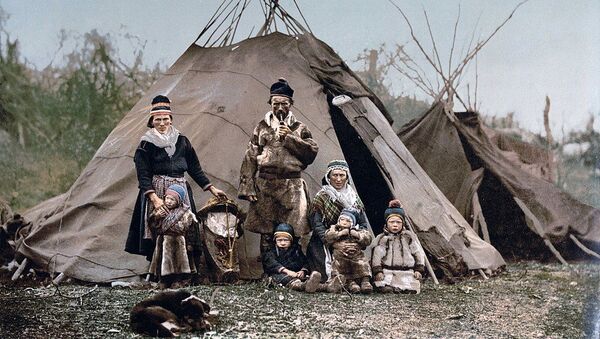The Church of Sweden has decided to apologise to the indigenous Sami people for what it has called "historical abuses", such as forced baptism and assimilation, as well as aiding and abetting degrading racial biological studies on the Sami people during the 20th century.
"There are numerous examples of previous apologies in various contexts, and it has not been properly prepared and almost felt like empty words, and we absolutely do not want that", Archbishop Antje Jackelén told Swedish Radio.
Jackelén specifically dwelled on the Church's role in racial biological studies that included skull measurements not unlike those performed by Nazi Germany as one of the reasons for the apology.
"The parishes, since they took care of the population register, became important cogs in making it possible to perform these racial biological studies on the Sami, which were very humiliating", Jackelén said.
On Wednesday, a dialogue was initiated with seven Sami organisations about a "proper" apology, expected to be formally presented during a Church meeting next year.
The initiative was welcomed by the Swedish Sami National Association (SSR).
"It signals that you have an ambition to do this in the right way", chairwoman Åsa Larsson Blind said.
However, for the excuse to feel acceptable, it must be followed by commitments, Åsa Larsson Blind stressed. For instance, the Church must use its "influence and room to manoeuvre" to support demands that Sweden ratify UNESCO Convention ILO 169, which among other things deals with indigenous peoples' right to land and water. Larsson Blind also wants the Luleå diocese, which is a major forest owner in Norrbotten and Västerbotten Counties, where reindeer husbandry is big, to certify its forestry according to the new standard, which explicitly stipulates that indigenous peoples should be taken into account.
The Sami people are an indigenous Finno-Ugric people living in vast and largely inhospitable northern parts of Norway, Sweden, and Finland. There is a tiny Sami minority on Russia's Kola Peninsula as well. The Sami pursue a variety of livelihoods, including coastal fishing, fur trapping, and sheep herding, but are arguably best known for semi-nomadic reindeer herding. Their reindeer herds are so populous that they greatly outnumber people in their areas.
In Scandinavia, the Sami have long experienced forced assimilation policies and were seen by the authorities as a "backward" and "primitive" people in need of being civilised. The Sami were historically known as Lapps or Laplanders, but the name has in recent years been retired as offensive.
In 1998, Sweden formally apologised for the wrongs committed against the Sami. Today, Sami is one of five national minority languages recognised by Swedish law, and since 1993 the Sami parliament has been active.




